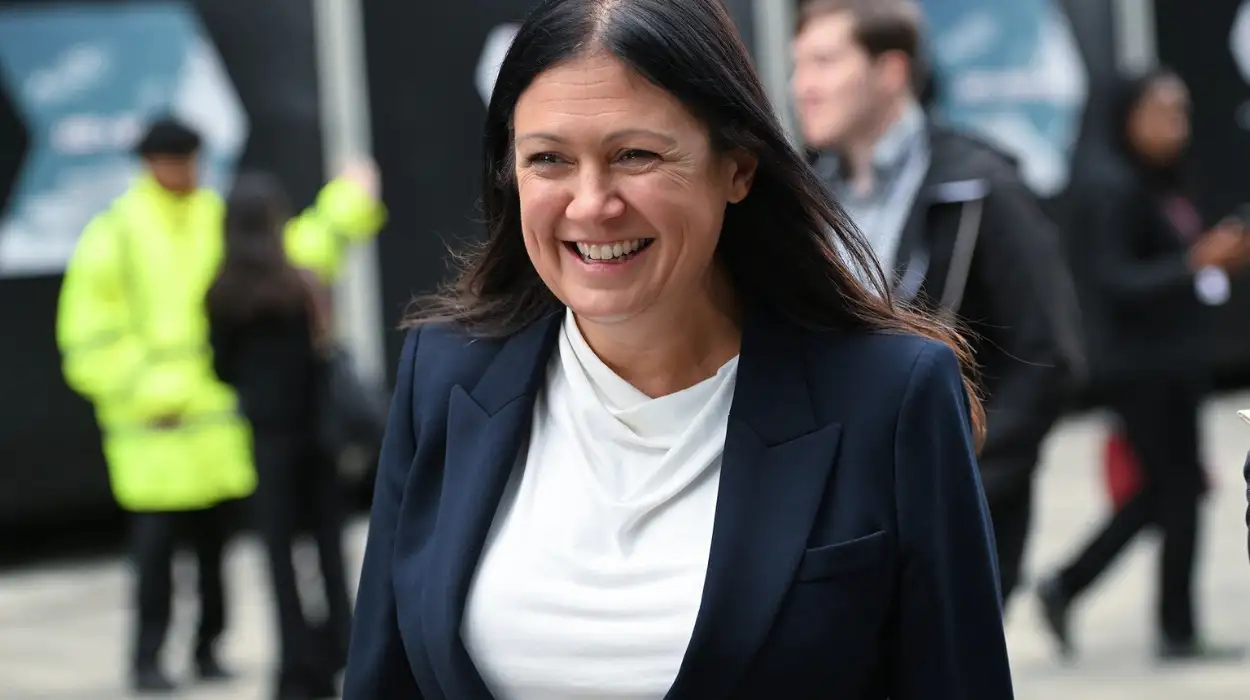UK (Parliament Politics Magazine) – Culture Secretary Lisa Nandy says sporting bodies should allow trans women in some women’s sports, ensuring fairness, safety, and inclusion.
As reported by The Telegraph, Lisa Nandy said some women’s sports could include trans women, even after the Supreme Court ruling in April.
The Culture Secretary suggested some sports could include everyone while maintaining safety and fairness.
How are sports bodies responding to the Supreme Court ruling on trans players?
Women’s sports could face legal action if they allow trans players after the Supreme Court defined a woman as a “biological female.”
Sporting bodies are examining the ruling to decide how trans athletes can participate in the future.
The Football Association announced that trans women would no longer be allowed to play in women’s football in England. The same restriction has been implemented by England Netball and the England and Wales Cricket Board.
How did Lisa Nandy address trans athletes in women’s sports?
Lisa Nandy said the issue of trans athletes competing with biological women remains complex despite the April ruling.
At a Labour Party conference fringe event on sport, she addressed questions on trans participation, saying,
“So we’ve been looking a lot at this… It’s not for Government, obviously, to decide how competitions are run, but there are three things that we’re trying to achieve.”
She said,
“So we’ve been looking a lot at this… it’s not for Government, obviously, to decide how competitions are run, but there are three things that we’re trying to achieve.”
Ms Nandy stated,
“There are others where it isn’t, and that’s where I think we need to make sure that we put as much energy and ambition into competitions that the trans community can participate in fully as we do into all of the others.”
When questioned about the April ruling posing challenges for trans inclusion, she responded,
“The sporting bodies are currently looking at the Supreme Court ruling and what it means for sport and it’s obviously their choice as to how to manage that.”
Ms Nandy said,
“But obviously, as a Government, we’re keen to support them to take a sensible and proportionate approach to observe the law, but make sure that we don’t shut people out from opportunities to participate in sport.”
She was asked whether trans women could participate in certain sports with biological women under rules of inclusion, safety, and fairness, Ms Nandy replied,
“We’re going to be led by the sporting bodies in this, but we want to make sure that they’re as inclusive as possible, but understand there are limits to how possible that is in some sports.”
The Culture Secretary described the matter as complex due to physical differences, adding that sporting bodies are working carefully to implement a proper solution.
Ms Nandy recently recommended leaving it to sports authorities to decide if biological males can compete with women, adding that most sports have balanced it well.
How did Fiona McAnena respond to sports fairness concerns?
Fiona McAnena, director of campaigns at women’s rights charity Sex Matters, stated,
“The Secretary of State should be demanding that all sports comply with the law and keep everyone male out of their female categories. There is nothing complicated about this. Categories are how sports ensure there’s a place for everyone.”
She said,
“Most sports have separate categories for female and male players because of male advantage, which is present throughout childhood and gets a huge boost at puberty.”
Ms McAnena stated,
“The first priority in sport is safety. Next comes fairness. The Sports Council’s guidance says that letting trans-identifying men into women’s sport is neither safe nor fair for women and girls. There is no middle ground.”
She said,
“If a sport is ‘gender-affected’ – that is, if male development confers an advantage – the only way to be truly inclusive of women and girls is to keep everyone male out of the female category. The Supreme Court confirmed that doing so is lawful under the Equality Act,”
“Women have waited too long for fairness in sport. It’s disappointing to see the Secretary of State failing to take a lead on this.”
Supreme Court’s ruling on trans women under the Equality Act
On 17 April, the Supreme Court ruled that trans women are not legally recognized as women under the Equality Act.
Five Supreme Court judges decided “woman” means biological female, affecting trans women’s access to women-only spaces.
According to them, trans people remain protected, but the Act treats sex and gender reassignment as separate grounds for discrimination.
Kemi Badenoch’s views on the Supreme Court ruling on trans women
Conservative leader Kemi Badenoch used the landmark judgement to attack PM Starmer, saying his era of claiming women can have penises is over.
She added,
“Saying ‘trans women are women’ was never true in fact, and now isn’t true in law either. This is a victory for all of the women who faced personal abuse or lost their jobs for stating the obvious. Women are women and men are men: you cannot change your biological sex.”
Key details about the Equality Act
The Equality Act combined over 116 old laws, like the Equal Pay and Disability Acts, to make anti-discrimination rules stronger. It safeguards nine characteristics, such as age, race, sex, disability, religion, and sexual orientation.
The law applies across multiple areas of life, including workplaces, education, housing, and public services. It aims to simplify protections while ensuring everyone is treated fairly and equally.

